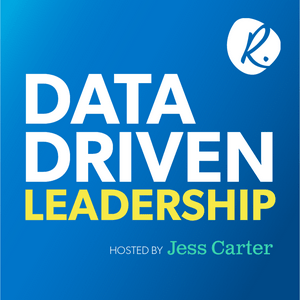Many organizations are adopting AI tools at record speed. Few are stepping back to ask whether they are meaningfully transforming how work gets done.
In this episode of Data-Driven Leadership, Jess Carter sits down with Sindhu Venkata, Vice President of Technical Delivery at Resultant, to discuss what intentional AI leadership looks like.
Sindhu introduces the idea of the "AI speed trap" — the cycle of moving faster, producing more, and slowly eroding quality, trust, and critical thinking along the way. She explains why AI failure is rarely a technology problem; it's a leadership problem.
This episode is especially relevant for executives, data leaders, and operators navigating AI adoption across their teams.
In this episode, you'll learn:
The difference between operational AI and transformational AI
Why the AI speed trap creates fatigue and poor outputs
How leaders can adopt AI without losing critical thinking
Things to listen for:
(00:00) Introduction to the episode with Sindhu Venkata
(08:02) The AI speed trap and work slop
(17:57) AI licenses vs. transformational strategy
(23:57) Trust erosion and AI hallucinations
(27:55) Leading AI adoption with intention
Sindhu's LinkedIn: https://www.linkedin.com/in/sindhuvenkata/


